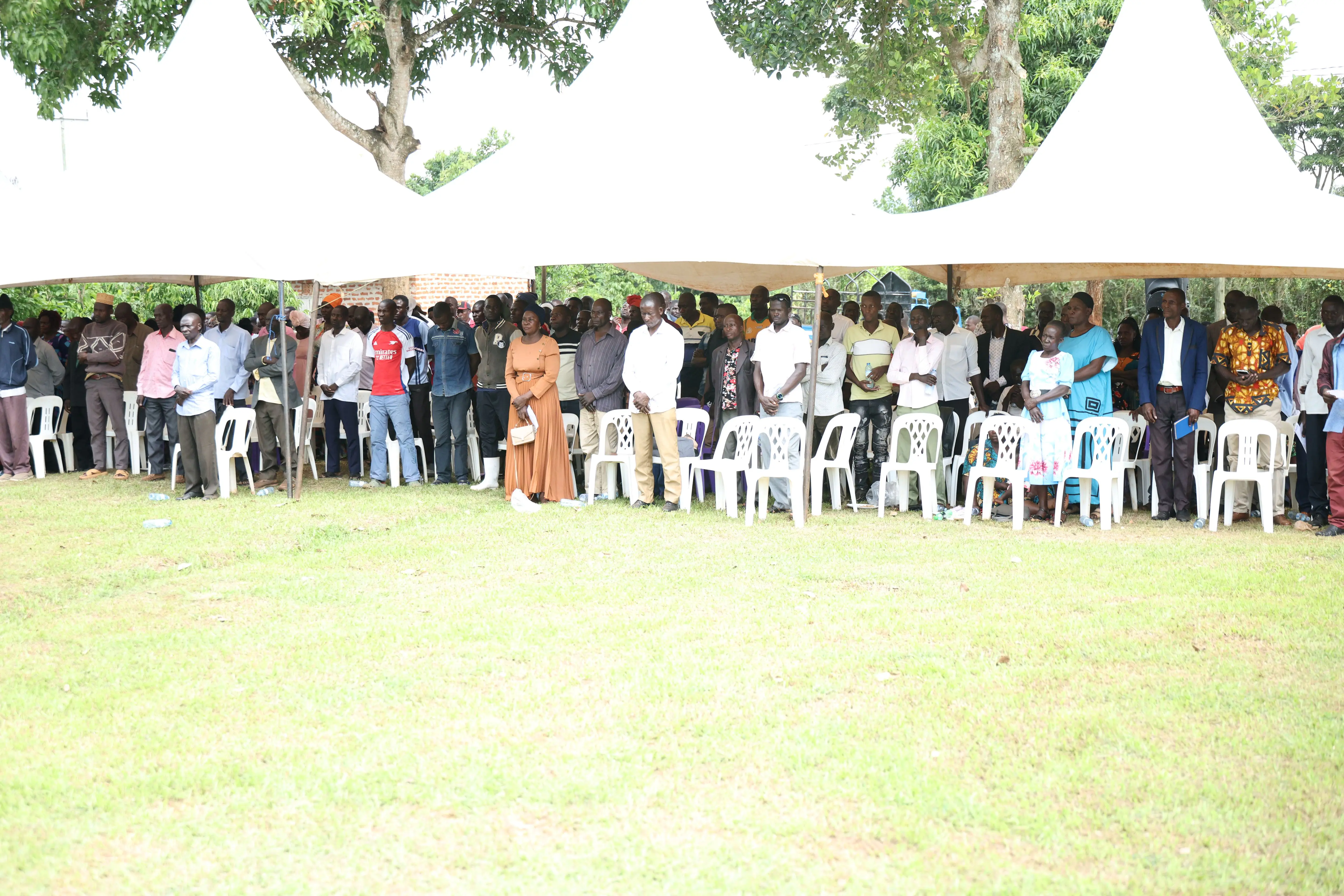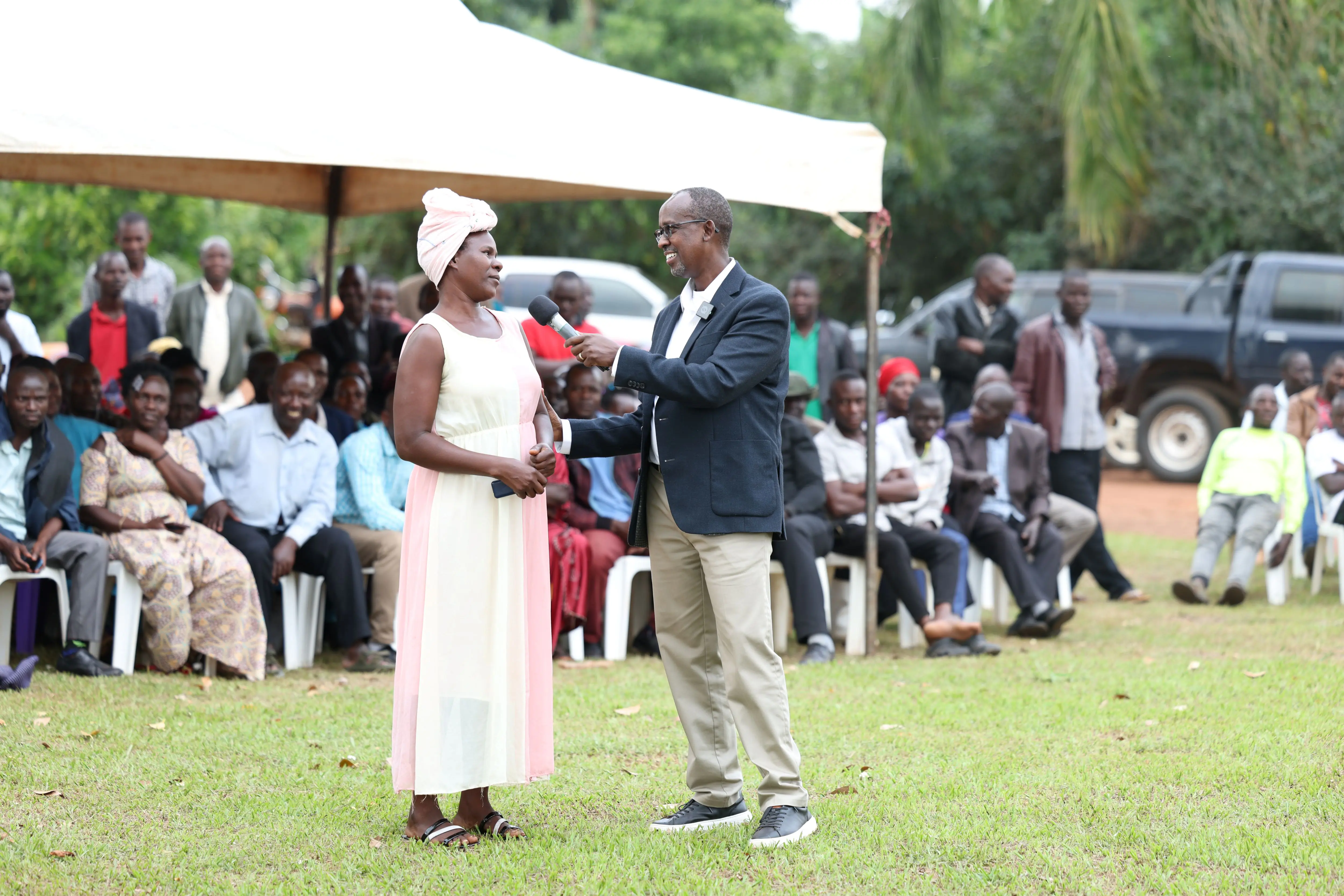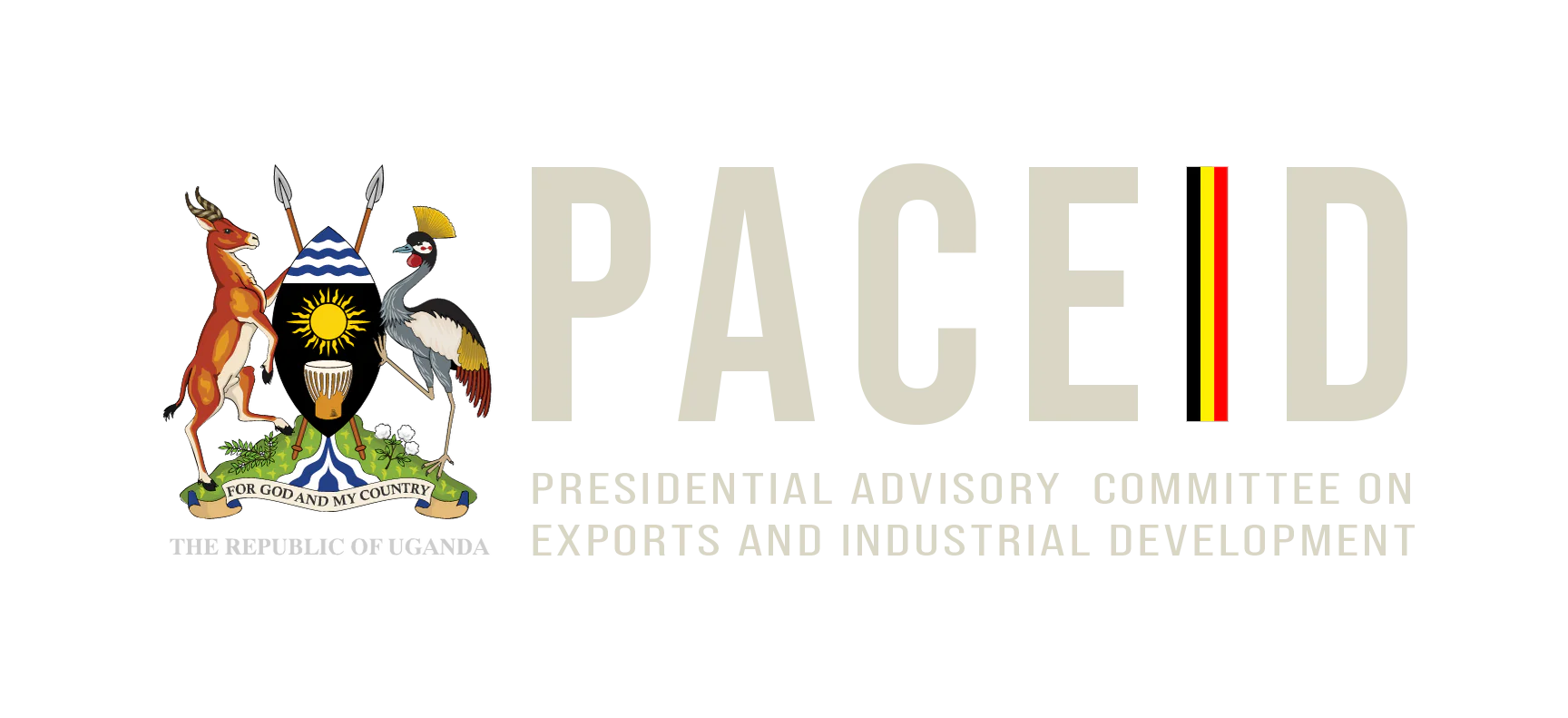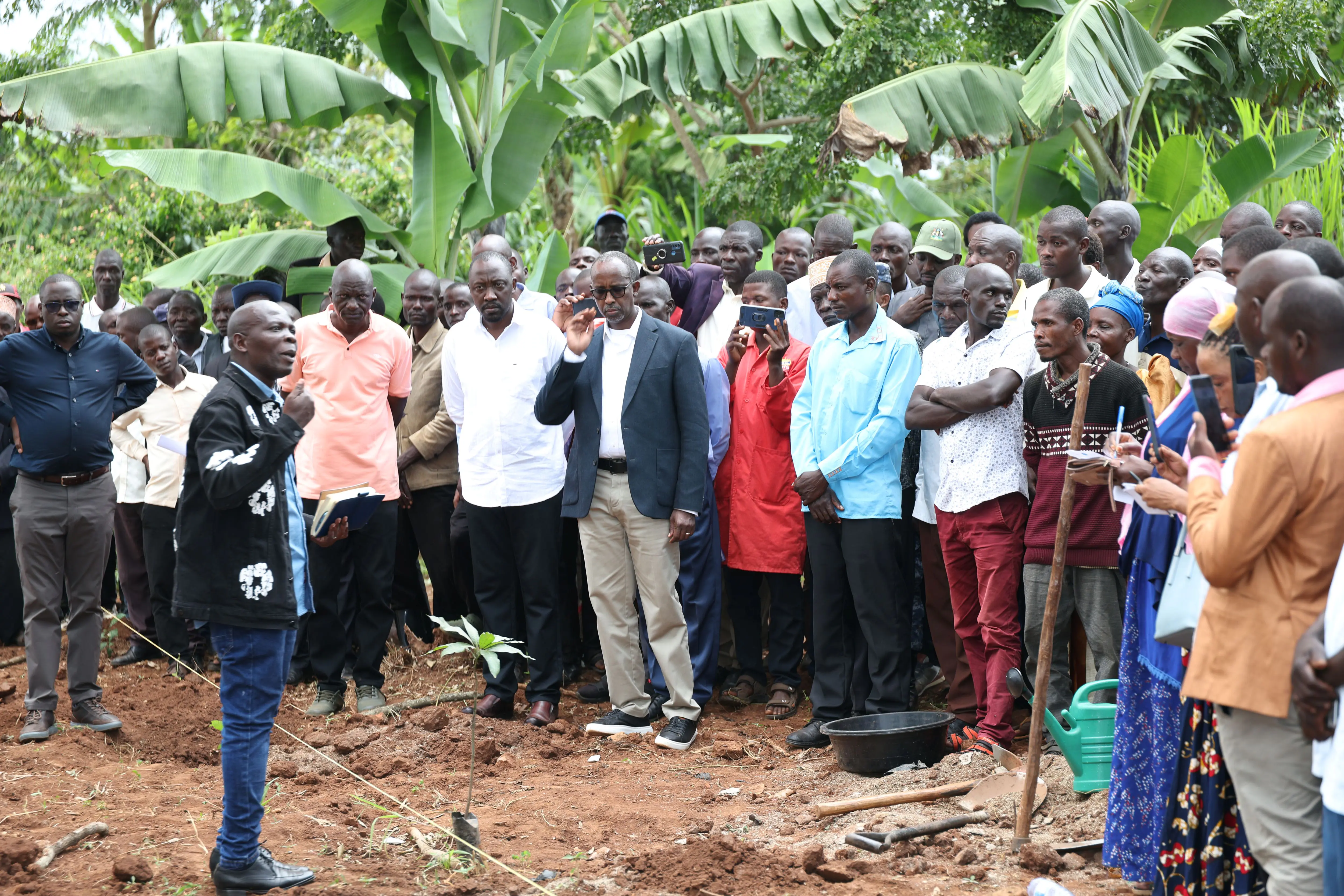The Presidential Advisory Committee on Exports and Industrial Development (PACEID) on Monday, July 14, 2025, held a hands-on export-readiness training session in Kamuli District, focused on equipping farmers, processors, and transporters with the skills needed to thrive in Uganda’s export economy.
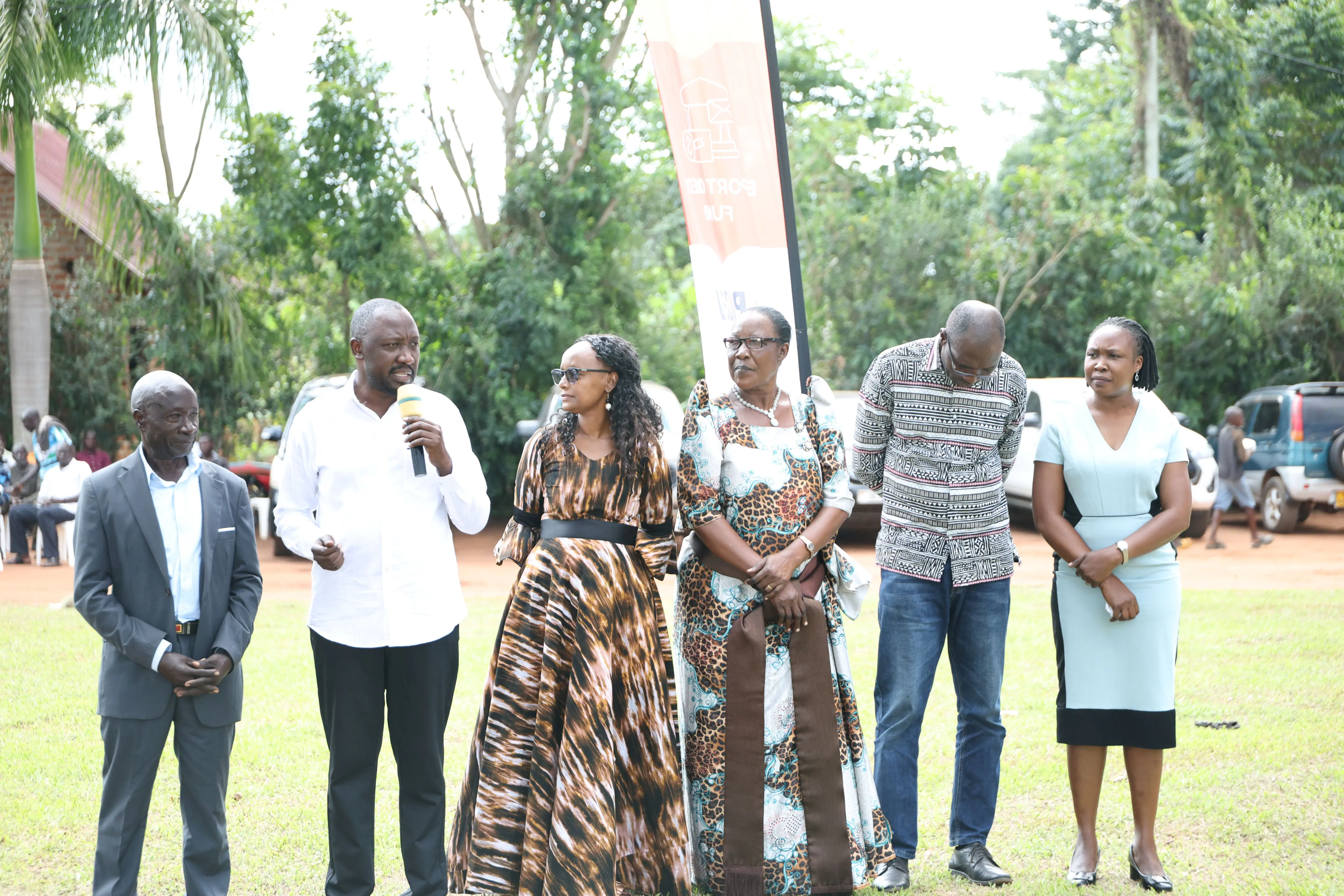
Thomas Kategere speaks, surrounded by his family
Hosted at the home of Thomas Kategere in Kabukye Village, Kamuli Municipality, the event brought together agricultural actors working in specific value chains for coffee, dairy, and cocoa, among others. These included nursery operators, transporters, store owners, processors, and farmers. The practical sessions emphasized improving productivity, meeting export standards, and embracing value addition.
PACEID Chairman Odrek Rwabwogo urged participants to form and strengthen product-based cooperatives to enhance bargaining power and build sustainable export capacity. “We need conscious discipline, not forced discipline,” Rwabwogo said. “Let’s stop fighting over politics and focus on productivity, unity, and good leadership. Good leadership isn’t tribal; it is focused on income generation.”
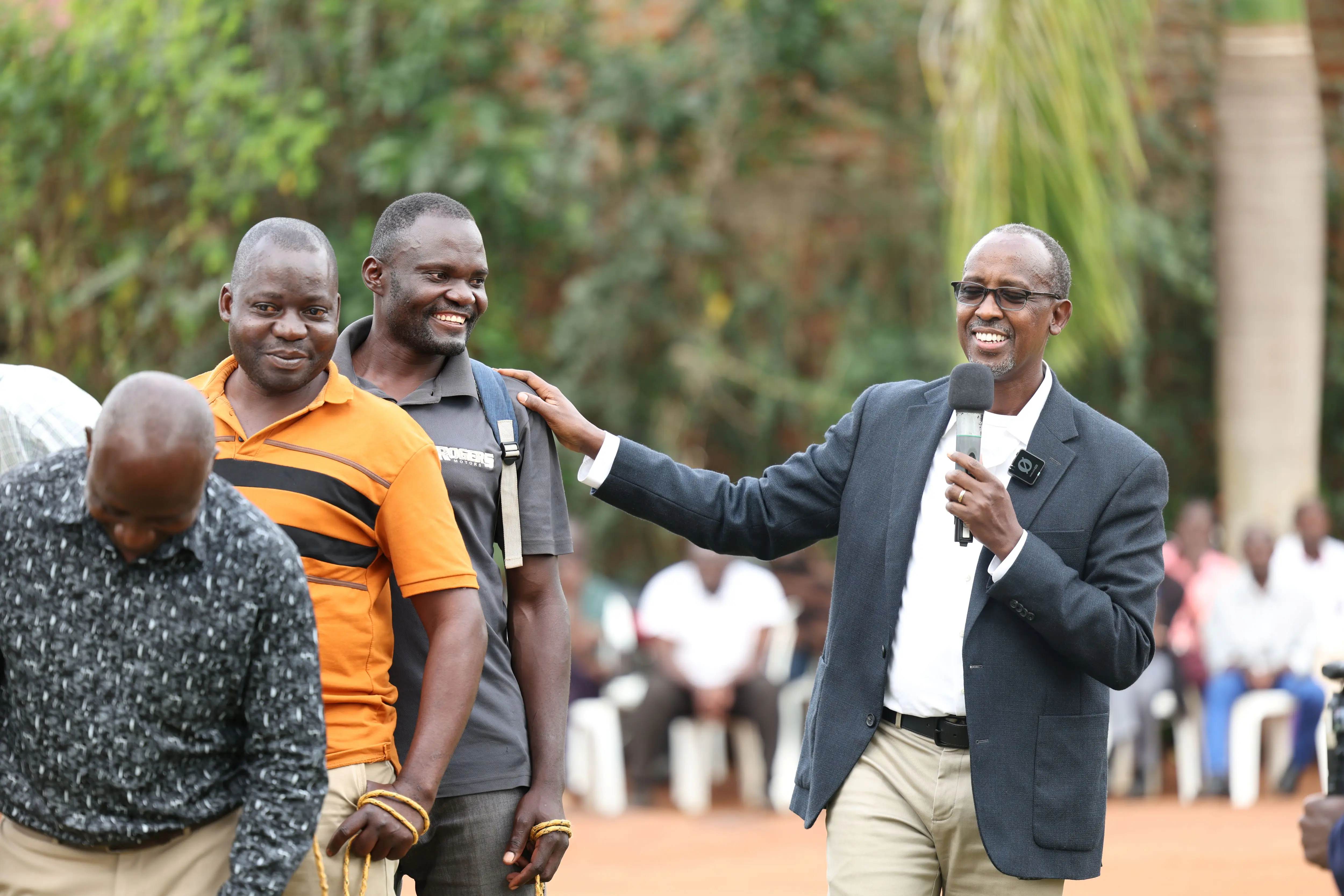
Odrek Rwabwogo called for unity through the formation of product-based cooperatives
He emphasized that economic transformation, one of the four pillars of nation-building alongside justice, security, and social services, is the space PACEID is directly influencing. He also outlined PACEID’s operational pillars: Market Access through Research, Export Standards & Compliance, Export Infrastructure, and Export Financing.
Addressing concerns over falling coffee prices, Rwabwogo pointed to the need for domestic consumption and value addition. “We must roast and drink our coffee to create internal demand,” he said, reinforcing the need to consume what we produce.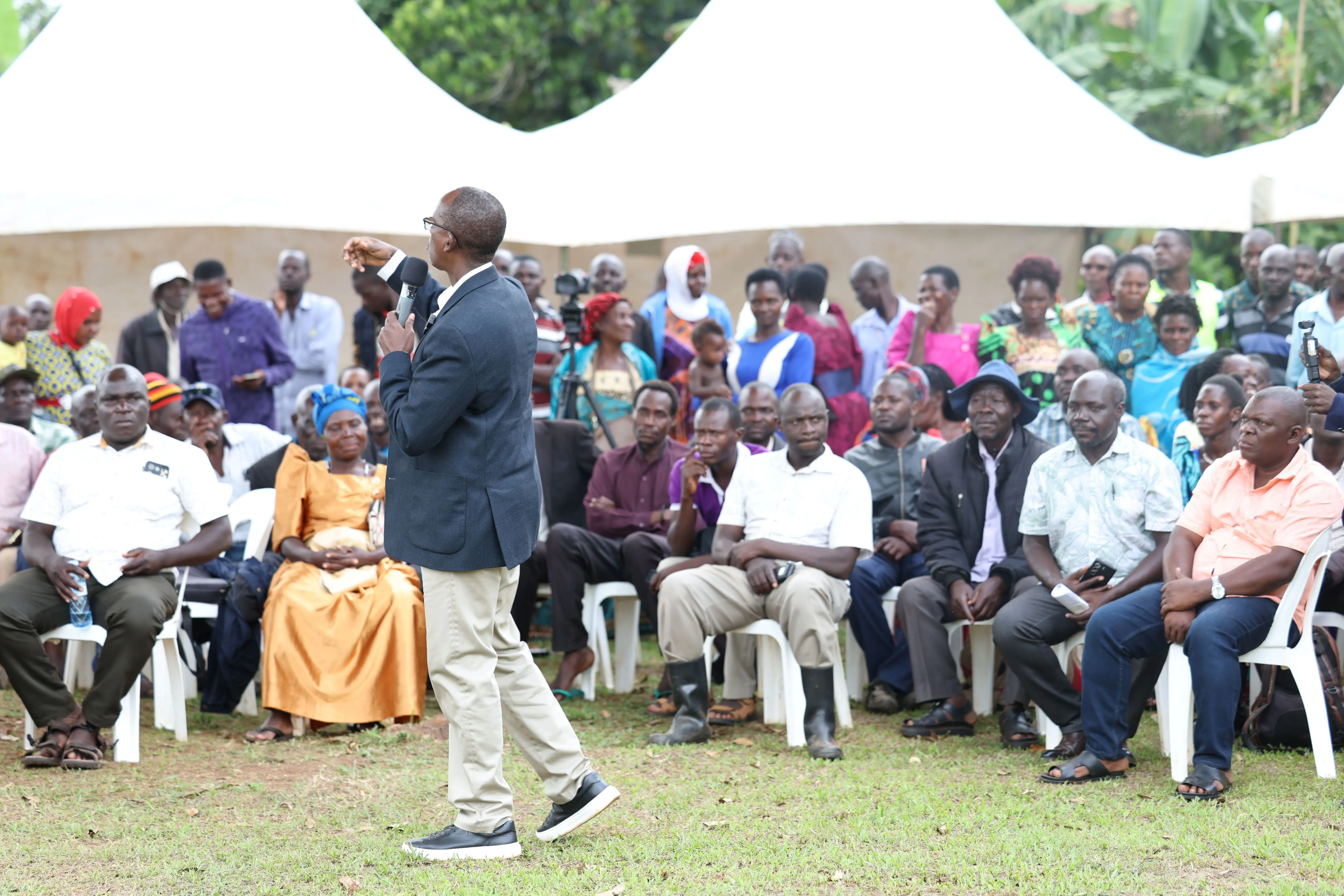
Participants benefited from practical demonstrations, including one by Kayemba John, a coffee nursery bed operator with the National Agricultural Research Organization (NARO) – Kawanda, who taught spacing, cutting techniques, and plant care. “Care for coffee like a child,” Kayemba said. “A well-tended tree can yield up to 20kg twice a year. Uganda can compete globally if we improve quality from the start.”
Despite the enthusiasm, farmers raised concerns around limited market access, lack of affordable financing, and insufficient on-farm value addition, challenges that Rwabwogo encouraged cooperatives to tackle collectively.
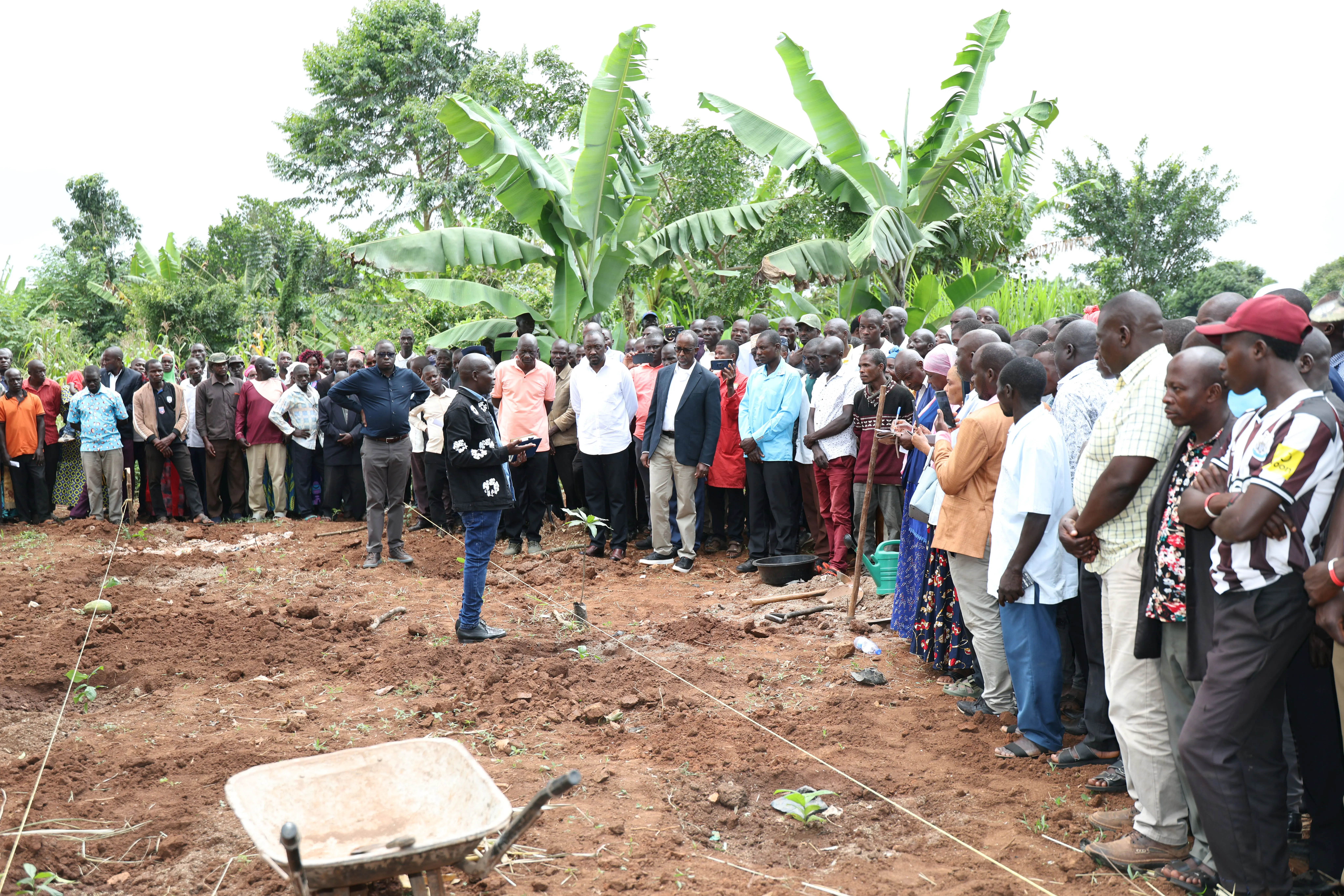
Kayemba John with participants at the demonstration farm
Another facilitator, Bamwiine Fred, a dairy farmer, challenged the mindset of smallholders. “With just 10 decimals in Kyanja, I keep 30 cows producing 350 litres monthly. One cow is enough to start,” he said. He highlighted dairy’s potential to provide over five income sources from food, milk, manure, fertilizer, and tourism opportunities.
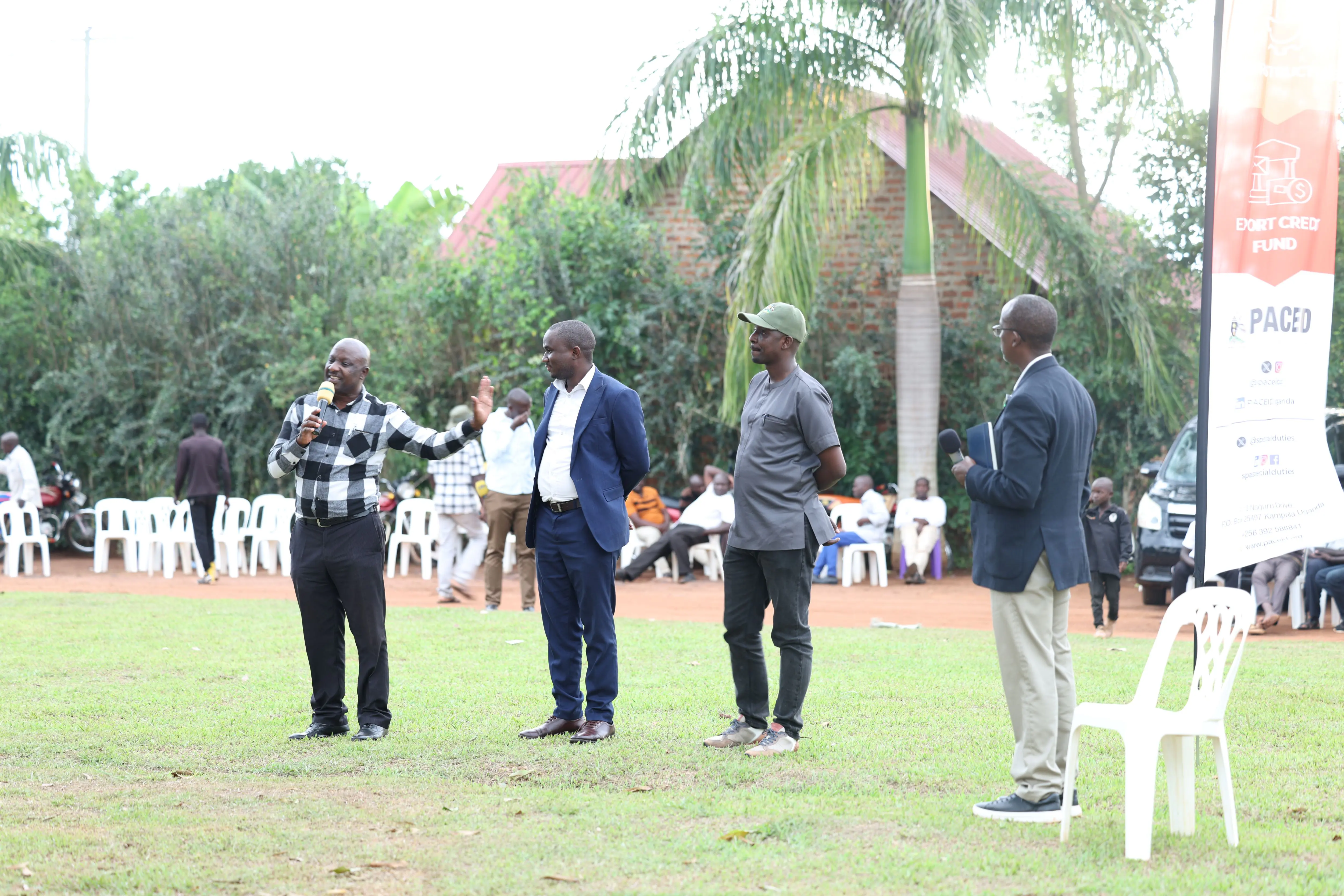
Fred Bamwiine (speaking) called for a mindset change aimed at income generation
The event concluded with Rwabwogo planting a mango tree on the demonstration farm, a symbol of growth, sustainability, and long-term investment. He commended host Kategere for championing cocoa and coffee farming in the region.
Local leaders, including the RDC, DISO, and religious leaders, attended the training, demonstrating strong support for Uganda’s unified export agenda. 